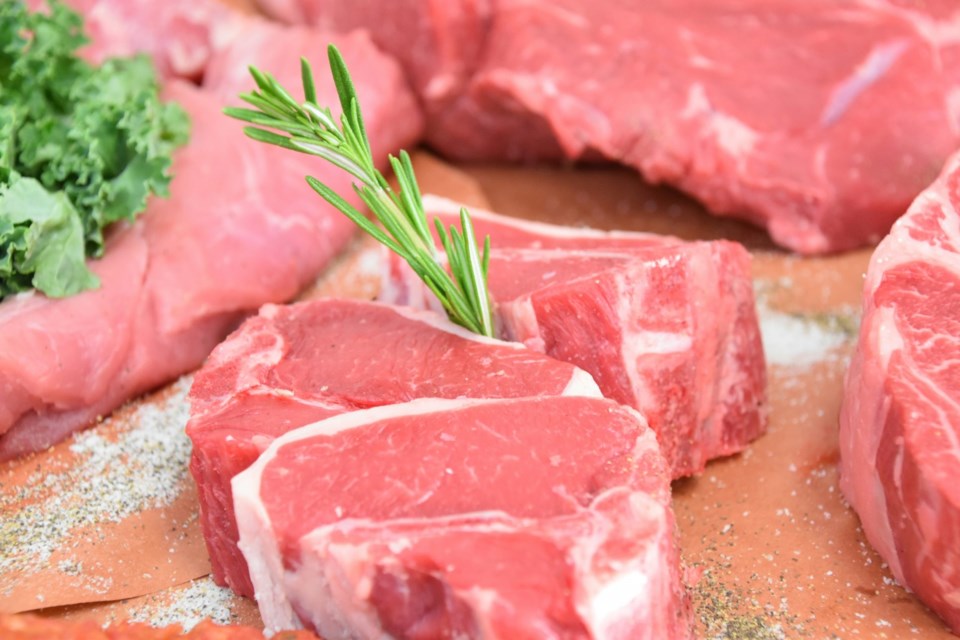It’s time to dispense with all this hand-wringing about the emergence of ungraded Mexican beef in Canadian grocery stores.
Instead of viewing this development with skepticism, we should recognize it as a positive step for Canadian consumers who are looking for more affordable options in these inflationary times.
I don’t have to tell you that the sharp rise in prices for essential goods and services has put a strain on household budgets and raised concerns about the overall cost of living. From groceries to housing, Canadians are feeling the effects of inflation, with prices outpacing wage growth and putting pressure on household finances.
Between supply chain disruptions and rising commodity prices, this is a moment in history when out-of-the-box thinking is essential.
So why not make a run for the border – from the comfort of your own kitchen?
The availability of ungraded Mexican beef presents an opportunity for consumers to diversify their choices, potentially leading to cost savings and increased access to quality meat products.
For starters, it’s important to address the misconception surrounding ungraded beef. While some may view ungraded beef as inferior or unsafe, it’s essential to understand that grading primarily focuses on factors like marbling and meat quality rather than safety. In reality, ungraded beef can still meet safety standards and provide a budget-friendly alternative for consumers.
And sometimes you can luck out and find a cut of meat that rivals the best you’ve ever had.
Last week, I purchased an ungraded Mexican ribeye at a very reasonable price from the meat counter of a grocery store less than 10 km from my home in rural Nova Scotia.
I wish I had a photograph – the steak glistened, its marbling was so intricate.
Seasoned with nothing but salt and cooked on the BBQ medium-rare, the rich, buttery flavour practically melted on my tongue. Each subsequent slice revealed a tender texture that seemed to defy the beef’s humble origins.
Hungry yet?
One of the key advantages of introducing ungraded Mexican beef into Canadian grocery stores is the potential cost savings for consumers. With those aforementioned rising food prices, having more affordable options available can make a significant difference for Canadian households. By diversifying the range of beef products on the market, consumers have the opportunity to make informed choices based on their budget and preferences.
And have you considered that embracing ungraded Mexican beef could contribute to a more sustainable food system?
By utilizing cuts of meat that may not meet the criteria for grading but are still safe for consumption, we can reduce food waste and make use of resources more efficiently. This not only benefits consumers but also aligns with the growing trend towards sustainability and responsible consumption.
Critics may argue that ungraded beef poses potential risks when it comes to quality control and food safety. However, it’s crucial to highlight that regulatory standards and inspections still apply to ensure that all food products, including ungraded beef, meet safety requirements. By upholding these standards and promoting transparency in the supply chain, we can mitigate any concerns and build trust among consumers.
So, rather than viewing the emergence of ungraded Mexican beef in Canadian grocery stores as a cause for alarm, we should see it as a positive development that benefits consumers and the food industry as a whole. Embracing diverse and affordable options can empower consumers to make informed decisions and contribute to a more sustainable and inclusive food system.
Let’s welcome this opportunity for innovation and exploration in our culinary landscape – and if it’s easy on the pocketbook, even better!
Sara MacKinnon holds a Master of Science in Agriculture degree from Dalhousie University. After raising two kids with her husband on a family farm in Colchester County, Nova Scotia, she pivoted to a career in tech last year and hasn’t looked back.
©




